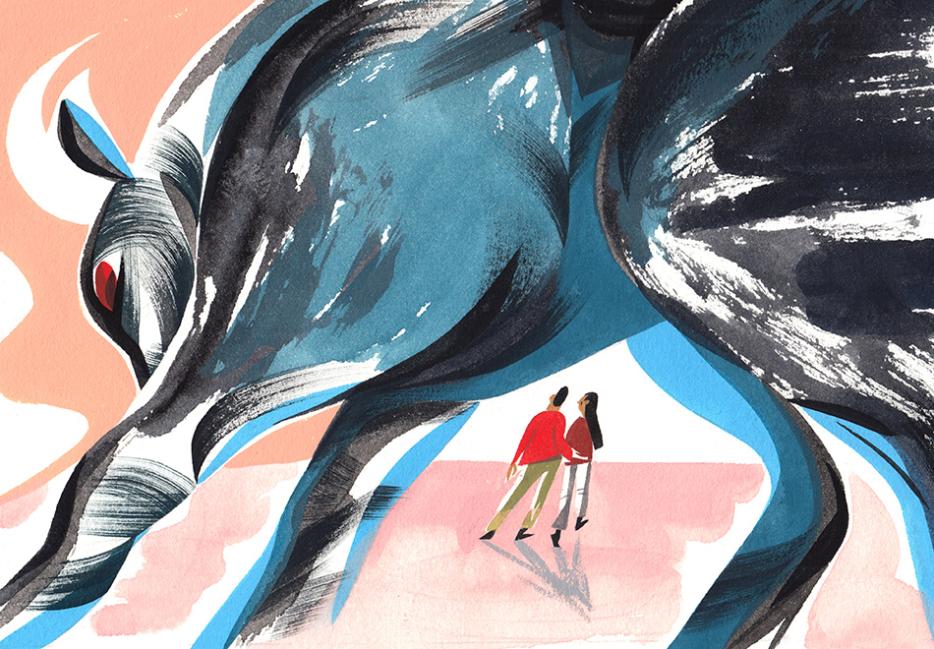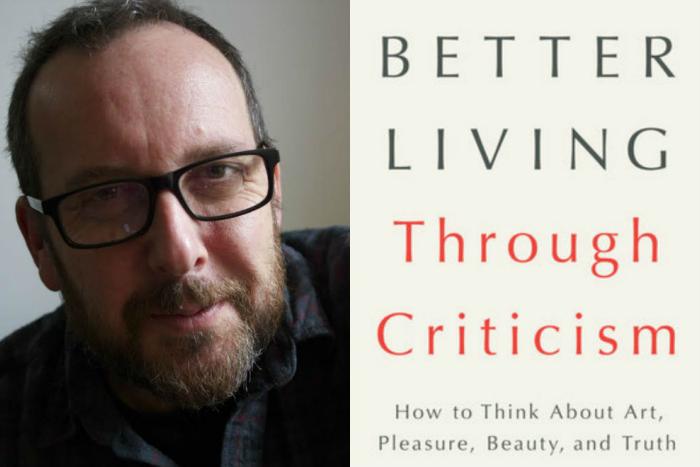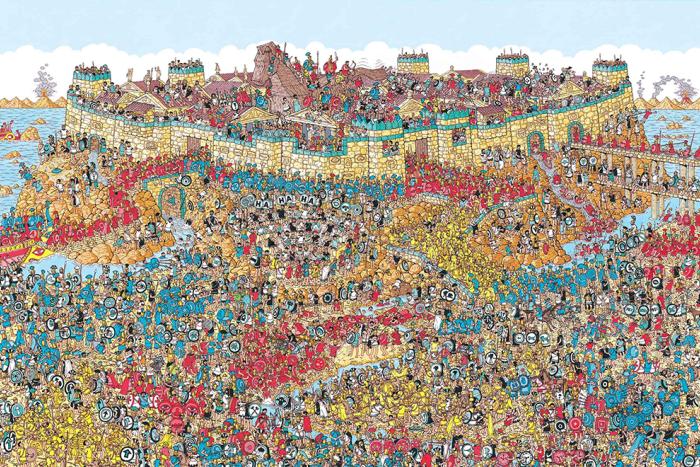People talk about fate as if it’s weighted, as if it’s seamless and inevitable. Fate, like an onomatopoeia, is precise, like the blade of a guillotine. Unavoidable, it comes rushing towards you with a thrust of steel and all you can do is close your eyes, let it cut through the edges, and wait for the pain to end.
When Jyoti Singh Pandey met her brutal fate in Delhi in December 2012, I thought of all the ways that it could have been me. She was on her way back from watching Life of Pi, a movie about human adversity. Hours later, she was beaten, gang raped by five men who saw through her, seeing just her sex. Her injuries were so brutal that she eventually died. She was murdered at the hand of a most grotesque terror; that kind of tragedy is endless.
As I thought of her, I thought of how readily brown and black bodies are disposed, women, more so. How close we brush against the states of violence that exist in so many realms, torturous, broken people— men—standing behind those horizons, shuddering against us. When I read the countless headlines on Jyoti, I became obsessed with knowing her, about who she was, what happened in those final acts of senselessness. I thought of myself—a fragmented Bengali—and how my life was so like hers, and yet, not, at the same time. We were both South Asian women, and that felt loaded to me. I was 22, almost 23, when it happened. She was the latter, but her time had come—she had met her fate. Again, that word: fate. What separated hers from mine?
In the early ‘90s, Bhanwari Devi was raped in a field by five men—her husband forced to watch—because she believed in the rights of women, upholding them through methods of educating her fellow villagers. In 2008, fourteen-year-old Aarushi Talwar was found dead in her own bed, with her throat sliced open, the blood soaking the sheets red. A year later, Neelofar, twenty-two years old, and Aasiya Jan, only just seventeen, sisters-in-law, were kidnapped, raped, and found a kilometer apart from one another the morning after they disappeared. Why them? What separated the countless South Asian experiences from mine? Our bodies, our identities, were similar, but mine had not seen war. I had not been in situations where the existence of my body offended another’s so desperately that they sought to destroy it, that it needed to be executed and ravaged by a stranger’s hatred. I felt indebted to these women because they lost their lives to an ubiquitous poison. They lost their lives for their rights to live.
Was it just fate?
*
Both of my parents speak Bangla with a poetic vengeance. In 1947, when British India sanctioned the partition between India and Pakistan, Bangladesh became the region known as East Pakistan. After the partition, Pakistan’s Governor General Jinnah declared: "Urdu, and only Urdu, will be the state language of Pakistan." Out of all the places he could have chosen to say that, he picked a public meeting at Dhaka University, a known hub of Bengali speakers. When I asked my father what that felt like, he responded, short, in an email: “People saw it as a threat to [our] language and culture.” That was the beginning of a seething economic, cultural and political divide that slowly led to usurping discrimination. And so the resentment began.
Language is a tool to define floating nostalgia into a sparking, intense reality. It has the ability to protect the weak that have been savaged by the ignorant opacity of its enemies.
Bangla refers to the language of its speakers, desh means land. Bangladesh became its own sovereign desh in December 1971 after a traumatic separation from Pakistan. Historically Bengalis have been found in the space from the farthest eastern block of India, where it touches the foothills of Burma, right down to the Bay of Bengal, where it plunges into the sea. It has always been a desh cut through with rivers, like a jigsaw a puzzle, separated into geometric pieces by strokes of water like the lifelines of a hand. The country has the world’s largest delta, the Ganges, shaped like an abstracted oblique triangle.
The earliest literary text written in Bengali is from the eighth century, and it was the language commonly used in religious texts named Charyapada (part of Vajrayana Buddhism) for its inherent profound poeticism. Bengali literature reached its intellectual apex in the nineteenth century when Bengali writer Rabindranath Tagore became India’s first Nobel Laureate. Speakers of this language—Bangla—spoke about freedom, but also about the languidness of poetry, the spoken word.
After partition, Bangla became an act of resistance. The declaration of Urdu’s importance by Jinnah struck the halcyon of Bengali high culture. Language has a cost, a lineage. Its importance has concentric, ontological merit. Language is a tool to define floating nostalgia into a sparking, intense reality. It has the ability to protect the weak that have been savaged by the ignorant opacity of its enemies.
Bangla was my parents' cultural legacy. Nobody could strip them of that identity.
*
My father, Samiul, is the son of a civil servant. He had eight brothers and sisters growing up in a lower middle class family in Bangladesh. When my sister and I were there, last spring, in an air conditioned car dormant of character, I watched the rickshaws swish past the dusty streets as my aunt explained that my young father, stoic, a classic Leo, had always been the caretaker of their family. After school in the ‘60s, he would walk through the streets, picking up groceries from the vendors: fish, vegetables, trailing in and around the stone barricades, walking home with the heaviness of the plastic bags slung across his shoulders. My heart went out to that little Sami, skinny and ambitious, his light golden-green eyes watching the world pass, wanting more for himself and his future family.
As my aunt told my sister and me the story, I thought of how I’d never done anything like that. I had never walked across muddied streets to feed my family. I had never had to sacrifice my time, my energy for others, not in that way. As the youngest, I had always played my role as the family brat. I spoke out at parties, I got tattoos and piercings as a young teen, I talked back. As my aunt tells me of my father’s natural filial piety, I watch him, his body crooked and lanky, running errands in the distance as we sit in the car, unmoving. I watch him cross streets from vendor to vendor, and I think of all that he has given up, all that my mother has given up—for me, for my sister, for the story of us.
*
Socialism runs through my blood. My maternal grandfather was a Socialist Party Member of Parliament in Pakistan’s National Assembly before Bangladesh was formed in 1971. After the war he was also a Member of Parliament in Bangladesh in the ‘80s, and one of the country’s top barristers.
He studied Law in England in the 1950s to become a barrister in a foreign country that depleted him of all his truly fascinating skills. Born into wealth, but a believer in ideology, he was a fervent Socialist who rapidly gave everything away, his land, his money. But he had one vice: a penchant for Marlboros that would later kill him. Forlorn to customs absurd to his rampant desire for modesty, he psychologically oscillated in British Society. An exceptional student, he acquiesced and learnt the laws of a queen who had splintered his country into three halves, one, two, three. What was he? An Indian? A Pakistani? Later, a Bengali. In the space of a generation he was all three.
Sometimes I forget that they all lived through a war. And that they survived.
My maternal grandmother was a headmistress, and she was discerning in a fearsome way. There are faded photos of her riding horses when she was younger, in knee high boots, or carrying around rifles with two twin braids, one on each side of her face. When she got older I only saw her in colorful sarees, the pale white skin of her belly spotted with the stains of life.
My father’s youngest brother was stillborn. When I heard the story, on a blistering humid day, sitting on the cold tiles of my paternal grandparent’s home in Dhaka, I saw the blue lips of the baby before me, its face tinged with pink and lilac, round like a cobblestone, the discoloration emphasizing his pulsating arteries no longer full with blood. I saw the baby before my eyes, and I mourned for it. My paternal grandmother has never said more than two things to me my whole life: How are you? Do you want to eat? Once I heard the trauma, I wanted to tell her I was sorry. Slip it in like an afterthought. Just before the beginning of the meal. In between my half closed lips, like a prayer. I wanted to tell her that life is a kind of madness that ends with death for all of us, but I never said a thing. I’ve never said a thing because she understands the tangibility of death; I do not.
*
Perhaps in the West known most pathetically for George Harrison’s 1971 concert to raise funds, the war between West Pakistan and Bangladesh (formerly East Pakistan) began with Operation Searchlight—the Pakistani government’s crackdown on Bengali sovereignty and self-determination. It lasted for nine months and in that time, it is estimated that close to three million people were killed, and that around four hundred thousand women were assaulted in a systematic campaign of genocidal rape. In the West, we so often overlook the deaths of black and brown bodies. Sierra Leone, Congo, Bangladesh. There’s no memorial, there’s no museum, there’s no reminder that dehumanization exists on every single level. How does a society move forward if they can’t even utter a trauma that haunts them? When there is no retribution they remain silent because nobody has declared it’s okay to talk about, or to work through. Nobody has said, yes: this was genocide.
Sometimes I forget that they all lived through a war.
And that they survived.
My paternal uncle disappeared into India to escape death and persecution. Bandits attempted assassination of my maternal grandfather. Throughout the months of 1971 (and for many years before) my family’s Hindu neighbors and friends lived in fear of death, and so found protection in local cemeteries and safe-houses with Urdu-speaking families. In September 1971 my father, at sixteen, witnessed the aftermath of a bombast in a shopping centre called Baitul Muharram, the largest mosque complex in Dhaka. When I wrote to ask him about the details of his experience, he wrote back: “It was the first time I saw burnt human body parts from my bedroom window.” More than forty years later, he can detail things with such lucidity. His fact-loving mind, monomaniacal, the professor in him, has perhaps sublimated the psychology of war, and that of his experience, diluting it down to facts.
I forget that my parents have smelt death, but in an impossible way. Their intolerable reality is that they have lived with the cruel abstraction of what war does to your body, and what it does to your mind. How you have to compartmentalize your traumas by reconciling that the striking fecundity that once existed in a land you called your own has been slowly displaced through acts of criminality. That the plushness of the green palm trees that used to calm you has now been overtaken by the excruciating sounds of explosions, sprawling debris, and that after a while you begin to wait for the objects shaped like death, sedately, as the gibbous moon sits above you—the only light that’s left in your darkness. That as you float on the lonely rooftops, watching the rage beneath you, the buildings that once stood before you have disappeared like a shadow.
I forget that when my parents think of war, after the blood strewn bodies wrangling across the streets and railways, they must also think of its palpability, of its vividness. When I think of war, I think about the still and empty pools, abandoned palatial hotel lobbies.
Once, when I was young, my father sat at a table with his friends after a dinner party at ours. He had retrieved his dark leather briefcase and placed it in front of him. I watched like a hawk as I sat on the floor in the next room. He pulled out newspaper clippings from a shallow yellow folder. Always curious, I sprung up and leaped towards the clippings: I wanted to see the secret. With one swift swoop, he, familiar with my natural nosiness, shielded it from me, a hand out towards my young sprightly body, and told me, in Bangla, to go to bed. That I wasn’t ready to see these photos. I asked when I would be, frustrated that my father, my general intellectual ally, was talking down to me. He remained silent. The classic paternal did I stutter?
He didn’t, however, realize that I had managed to see the black and white charred bodies that lay across the paper like a headline. As I walked away I caught him saying something along the lines of: “White bodies would never be shown like this.” I was too young to understand what that would mean to me many years later.
I forget that when my parents think of war, after the blood strewn bodies wrangling across the streets and railways, they must also think of its palpability, of its vividness. When I think of war, I think about the still and empty pools, abandoned palatial hotel lobbies. I think of the deserted fields with broken shrapnel that have replaced the daisies and the weeds, the dirt pulsing through with streaks of what used to be grass. I think of war through the films that I’ve watched, of its dehumanization—yes—but also of its aestheticism. I think of it outside of me. I forget war’s realities.
*
In the spring of 1987 my father was hit by a running bull. My sister told me first, and then I, seven years old, quizzed him about it. The scar, which he’s shown me once, lies on his stomach north-east of his bellybutton. He says he saw this bull past a gate, where it stood brazen, on some weird drug, eyeing him like a target. He grew steadily quicker in his steps, making sure not to break into a run, only to keep the bull and his eye contact civil, but something interrupted the agreement. The bull furiously ripped from his leash, beating his flanks, paused in its own dull, senseless frenzy, and made his way towards my father. Suddenly, to my father, the traffic was scarcely audible, and only the sounds of the bull’s hooves escalating reverberated. Through the shouting paralysis of his exploding fear, the bull leapt at the void and struck him down, running over his left ankle, and breaking his glasses. The groceries leapt as well, and all was lost, and struck, in seconds. The horn missed his kidney by “two-three centimeters,” he explained to me.
After I looked at the scar for mere seconds my dad re-tightened his lunghi, and chuckled, singing his favorite Tom Jones song. As I watched him sing, going about his business, I realized how strange it was that I was alive. That if the bull’s horn had delved any closer to my father’s left he would have died. My mother, a widow; sister, fatherless; me, unborn, a ghost.
I think about him, bloody and senseless, people around him, spectators, on the street watching, and the dusty shadows of Chittagong whirling on. I think of the bull’s horn cutting through the skin, the vessels bursting. I imagine the fibres of his skin torn open, the sting like a terribly tenacious laceration, and him supinely strung out near the gutter water that smells fresh with rot, the sulfur exhausting. When he went to a kidney specialist a few days later, the doctor, exasperated, said: “I don’t know how you survived.”
I think of this statement all the time.
*
My father immigrated to Canada first in the ‘80s, and then my mother followed with my sister. Somewhere in there, I was born. The plan was that my dad would finish his PhD and then we would move back to Bangladesh, so they could pay obeisance to the land that they fought for in our name.
We were in Dhaka for eight months, and in that time my four-year-old body reacted so poorly to the heat that I lived with boils for the entirety of that stay. It was difficult for my father to readjust to the Bengali education system. So my parents decided to move to Australia with two kids, and no money. My father worked as a lecturer. He faced racism and other forms of subtle bureaucratic abuse; namely being overlooked because of the brownness of his skin. My mother dealt with her own emotional despondency, her mental illness and her loneliness, in a dark room, away from all that she’d ever known. I think of her crying, looking past a window, scarred by all she’s seen, but unable to give it words.
The women that came before me, the women that are so like me, like my mother, are targets of the bellicose aggressions of weak men, and my parents protected us so that my sister and I would never have to be familiar with the cacophonous sounds of war, or of its brutal rhythms.
My mother loves dancing. She loves poetry, the kabitha of Kazi Nusrat Islam. I grew up going to poetry readings, too distracted by my young hatred of her to understand how I was slowly becoming a replica of her, her artistry, her composition. The way her vibrato would intensify as she would speak her poetry, like a thrilling crescendo, the rise and fall of performance; the force majeure of life and art, playing out in her brilliant penchant for coming alive. I would watch her paint, known for her landscapes. The smell of lanolin oil and turpentine, the miasma of my childhood. I liked the way she mixed colors with her brushes, the grittiness of oil paints. How she would flesh out the pine trees in a series on Canadian wildlife. In those moments, I could never remind myself of how much she had suffered. That now, all she was trying to do was survive. I didn’t understand her illness.
Blame, however, is not symmetrical. The patina of the West’s appeal does nothing for people who have seen murderous machetes cut limbs off, or the pallid oblique death of your abuser’s face. When you’ve seen armies engineering massacre, heard people scream for their lives—the sound like broken bottles endlessly breaking—life is a ricocheting, agonizing feat. My mother has always talked about the past, but never the future. The future is too blurry, too terrifying in its lack of distinction. People with traumatic pasts can never hope, but they can try.
I always assumed it was their choice to leave. I always assumed that they wanted a better life, too.
*
There’s a photograph that was taken of me when I was six years old. My parents and sister stand by a blackboard, but I refuse to look at them. I am so ashamed that my mother is wearing a saree that I can’t turn to say goodbye. I want nothing of them. They don’t’ represent me, my tiny body seems to scream. They smile, all three of them, but their faces are pained with the deliberation of my cruelty. Or maybe it’s just my own projection, years later, now that the absoluteness of love I feel for them in that moment leaves me breathless. In the photograph I am playing with my white friends. I never turn to fill the cracking pain of my familial betrayal.
When death will finally come for me, I will play that memory on a loop and pray to God, and my family, for my sins. There are no words to say that I’m sorry. There are no words to describe this faint feeling of my heart being scooped out of me by all my inglorious shittiness. My heart feels empty, itself reduced to a continuous sinking feeling that is tethered to the roots of me. I owe my parents everything, everything, everything I have absolutely been and become, and there will never be words enough to describe the fullness of my love for them. For everything we have suffered, together but, more so, for their struggles that I have so righteously overlooked.
I so easily forget my parents are my heroes.
*
If atoms had dispersed differently, and my parents had chosen a different path; one that many other parents took in their positions—a life where they stayed with their family, with their friends—I might have led a life that wasn’t so scattered with privilege. That guilt weighs me down like rocks lining my pockets. Like a black surf, it usurps me.
I am a direct mix of the both of them: My father’s academia; my mother, the artist. I forget that my passions aren’t really my own, but were shaped by people so much more fascinating than me. I have struggled for so long to like myself, to like my body, to like my otherness, but recently I realized that loving who I was, for who I was, was honoring all that my parents had done for me. How their strength, their resilience, is like calcium in my bones. That I move for them, I move because of them.
The women that came before me, the women that are so like me, like my mother, are targets of the bellicose aggressions of weak men, and my parents protected us so that my sister and I would never have to be familiar with the cacophonous sounds of war, or of its brutal rhythms. So, I think of Jyoti, I think of those four hundred thousand Bengali women, I think of my family’s past, my land’s past—everything that I carry, that ancestral baggage that has given me depth and diversity, and pain; but the things that have made me who I am. My family shaped me; I was lucky to have been born to them.
There is no burden for the paths we’ve plumed together. There is a reason for all that’s come, and I see it so clearly sometimes that my body aches. It aches because I couldn’t save them; I’ll never be able to thank them enough for choosing to make a better life for me, and my sister. There is an un-shaking resoluteness that binds me to them. I am in love with them. Everything I do, I do for them. Making them proud is the only thing I could ever hope for. I am sorry that they sacrificed all this for me only so I could drop out of school, date boys, and become a writer. But more than anything I am grateful. and I will never stop thanking them for every last thing.






